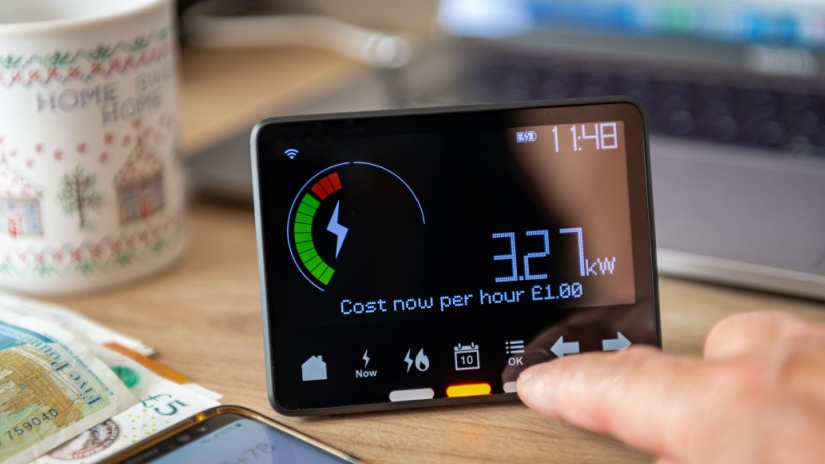Everything you need to know about smart meter installation

Smart meters, often referred to as digital or advanced meters, are considered one of the most significant advancements in the energy sector. Every home and business in Victoria already have a smart meter, and the technology is increasingly being adopted in other regions due to changes in the National Electricity Rules.
Smart meters offer several benefits to both households and businesses. It can provide real-time energy usage information by recording data every 30 minutes. This live data can be accessed through mobile apps or web portals, helping customers identify and reduce electricity wastage to save on bills. Smart meters also enable quicker response times to connection issues by notifying electricity distributors more efficiently.
If you’re looking to access flexible rate tariffs, similar to time-of-use tariffs but with a single continuous reading that records the time of usage, smart meters are the answer. Lastly, smart meters facilitate faster switching between energy providers, as it allows for remote disconnection and reconnection, speeding up the process of moving to a different provider.
So, what does installation look like? What happens during the process? Let’s take a look.
What does a smart meter do?
A smart meter, also known as a digital or advanced meter, tracks your household's electricity usage in 30-minute intervals using real-time technology. It sends this data wirelessly to your energy retailer, providing constant updates on your energy consumption.
This information can help you monitor your usage habits and save money on power bills.
Having a smart meter also gives you more flexibility in choosing an electricity plan. With a smart meter, you can select between a time-of-use tariff or a single-rate tariff, each with its own benefits.
Without a smart meter, you can't access time-of-use plans, which offer cheaper rates during off-peak and shoulder periods when energy demand is lower.
How to get a smart meter installed
There are some easy steps to getting a smart meter installed in your home:
Reach out to energy providers
Begin by researching and contacting various energy providers to find the most competitive rates and determine its availability in your area. This will help you identify which providers offer smart meter installations and what plans it has.
Ask about costs
Ask each provider about any associated costs, including installation fees and ongoing expenses. Understanding these costs upfront will help you make an informed decision and avoid any unexpected charges later.
Schedule the installation
Once you've chosen a provider, arrange a date and time for the smart meter installation. This could involve replacing an existing meter or setting up a new one. Ensure the scheduled time works for you to avoid any inconvenience.
Ensure safe access
Before the installation date, prepare your premises to allow the energy retailer to safely install the smart meter. This may involve clearing any obstructions and ensuring that the installer can access the meter location without any safety concerns.
Are you eligible for a smart meter?
To determine your eligibility for a smart meter in Australia, consider the following key factors:
What does your energy provider offer?
Contact your energy provider to see if it offers smart meters as part of its electricity plans. Not all providers may have smart meter options, so this step is crucial.
Compare the available plans. Look into different plans that include smart meters to ensure you get the best deal and features suitable for your needs.
What is the availability of smart meters in your area?
Look at whether smart meters have been widely rolled out in your area. Some regions may have full coverage, while others may still be in the process of transitioning.
Check local regulations and initiatives that may influence the availability of smart meters in your region.
Is the existing meter in good condition?
Determine if your existing meter is damaged or faulty. If it is, it may need to be replaced with a smart meter to ensure accurate readings and compliance with modern standards.
Some energy providers may offer to inspect your current meter and advise on whether a smart meter upgrade is necessary.
Does your new build require a smart meter?
Newly built homes are often required to have smart meters installed as part of its construction standards. If you are moving into a new property, verify if a smart meter is already in place.
Coordinate with your builder or property developer to ensure that the smart meter installation is completed before you move in.
Is there access for the meter to be installed?
Ensure that your property does not have unsafe wiring or hazardous materials that could impede the installation of a smart meter. Safety is a priority, and any issues must be addressed beforehand.
Have a licensed electrician inspect your property to confirm it is safe for the installation of a smart meter. It can identify and rectify any potential hazards.
Smart meter installation costs
Smart meters are generally not free to install, but it will really depend on your energy provider what you’ll pay for one. Understanding the costs associated with smart meter installation is essential. Here's what to consider:
Upfront costs
Some electricity retailers cover the initial costs of the smart meter, including installation. It might then add a lump sum to your next energy bill or spread the cost over several billing periods.
What about deals?
Certain providers may offer free smart meter installation as part of a special deal or promotion. However, be cautious of potential hidden costs. For example, while the installation may be free, the provider could increase its usage rates to compensate.
Look for hidden fees
Always carefully read the contract details. Look for any hidden fees or rate increases that might apply after the smart meter is installed.
How long does it take to install a smart meter?
If you live in New South Wales, Queensland, South Australia, or the ACT, you can expect a new smart meter to be installed within about 10 business days.
If you’re replacing an existing meter, including those for solar systems, it usually takes around 20 business days.
In Victoria, your energy distributor handles meter upgrades. It's best to contact them directly to arrange the installation or upgrade of your smart meter.
Should I have a smart meter installed?
In Australia, smart meters are mandatory for all new property connections or when an existing meter needs replacement due to a fault. Beyond these requirements, there are several compelling reasons to consider installing a smart meter:
Better rates
Smart meters enable you to take advantage of off-peak electricity rates, which can significantly reduce your energy bills by shifting usage to less busy times.
Monitoring energy consumption
With a smart meter, you receive real-time data on your energy usage. This information helps you understand your consumption patterns and identify ways to save on electricity costs.
Connect remotely
Depending on your energy provider, you may be able to connect or disconnect your service remotely through a mobile app. This feature adds convenience and flexibility to managing your energy account.
Tracking solar output
Smart meters can measure the electricity generated and exported by your solar system. This helps you maximize the benefits of your solar investment and ensures accurate billing for the energy you supply back to the grid.
Connect with Compare Energy
Are you looking to upgrade to a smart meter? Talk to our Aussie-based experts about smart meter installation in your state on 1300 790 106.

